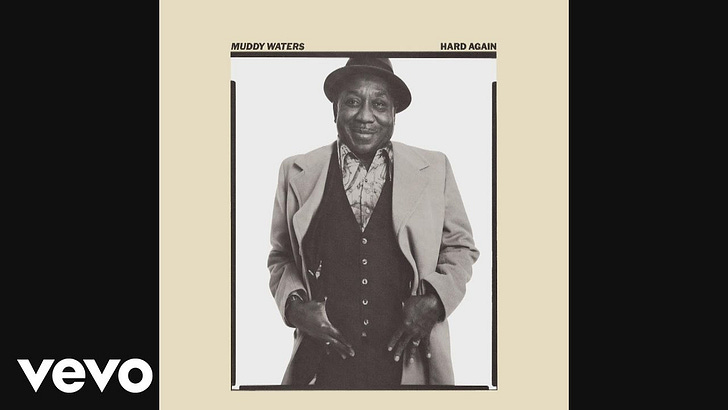"Mannish Boy," written and sung by Muddy Waters.
Although the song contains sexual boasting, its repetition of "I'm a man, I spell M, A child, N" was understood as political. Waters had recently left the South for Chicago. Growing up in the South, African Americans would never be referred to as men but as "boys." In this context, the song asserts black manhood." -Wikipedia.
"This is one stanza of the lyrics:
That spell mannish boy
I'm a man
I'm a full-grown man
I'm a man
I'm a rollin' stone
I'm a man
I'm a hoochie-coochie man"
"Manish Boy" by Muddy Waters is a quintessential blues song that delves deep into masculinity, identity, and resilience themes. Written in 1955, it is a powerful anthem of self-assertion and personal pride, capturing the essence of the African American experience during social upheaval and racial discrimination.
The song opens with the iconic declaration, "Oh, yeah, everything, everything, everything gonna be alright this morning." It sets a confident tone, suggesting an unwavering belief in a positive outcome despite the hardships. As a listener, you might recall your moments of resilience and hope. Waters then proclaims, "Now, when I was a young boy, of five, my mother said I was gonna be the greatest man alive." This introduction establishes a personal narrative and underscores the cultural importance of maternal influence and support in developing self-identity, which resonates with many of us.
Waters' repeated assertion, 'I'm a man, I spell M-A-N, man,' is not just a powerful affirmation of his masculinity and strength but a direct challenge to the societal doubts and stereotypes about his identity. In the context of the 1950s, this assertion was particularly significant. African American men often faced systemic racism that sought to undermine their sense of manhood and dignity. Waters' bold declaration becomes an act of defiance, a reclamation of his rightful place in society, inspiring us with his resilience.
The song's title, 'Manish Boy,' is not just a catchy phrase but a profound exploration of the concept of manhood and the transition from boyhood to manhood. It encapsulates a blend of youthful exuberance and mature confidence, a journey many of us can relate to. Waters skillfully navigates this duality, showing how experience and innocence shape our life journey. The use of 'Manish' instead of 'Manly' adds a conversational, almost playful tone to the subject, highlighting the fluid nature of identity and growth.
Musically, "Manish Boy" is characterized by its driving rhythm and call-and-response structure, hallmarks of the blues genre. The repetitive, hypnotic riff and Waters' powerful vocal delivery create an immersive listening experience. As you listen to the song, you might find yourself tapping your foot to the rhythm or feeling the power of Waters' voice. This musical arrangement reinforces the song's lyrical themes. It connects it to the rich African American musical expression tradition, where the blues served as a vehicle for storytelling and emotional release.
Interpreting "Manish Boy" involves understanding its broader cultural and historical context. The blues emerged from the African American experience in the Deep South, reflecting themes of struggle, resilience, and hope. With its assertive lyrics and commanding presence, Waters' song embodies these elements. It speaks to the universal human desire for recognition and respect while addressing specific racial and cultural challenges.
The song celebrates personal empowerment. Waters' declaration of manhood is not just about gender; it is about claiming one's identity and worth in a world that often seeks to diminish it. The song becomes an anthem of self-respect and determination, resonating with anyone who has faced adversity and fought to assert their place in the world.
Muddy Waters' "Manish Boy" is a profound blues anthem exploring masculinity, identity, and resilience themes. Through its powerful lyrics and captivating musical arrangement, the song asserts a confident and defiant sense of self, challenging societal norms and celebrating personal empowerment. Waters' masterpiece remains a timeless expression of the human spirit, resonating across generations and cultural boundaries, a testament to its universal appeal and significance.
Today, I cannot think of a more relevant song. In Israel, Gaza, and Ukraine, as well as in the United States and elsewhere, people are fighting for recognition of their humanity and dignity against others who want to belittle and humiliate them.




Self worth starts with self.
Yeah buddy, better believe.